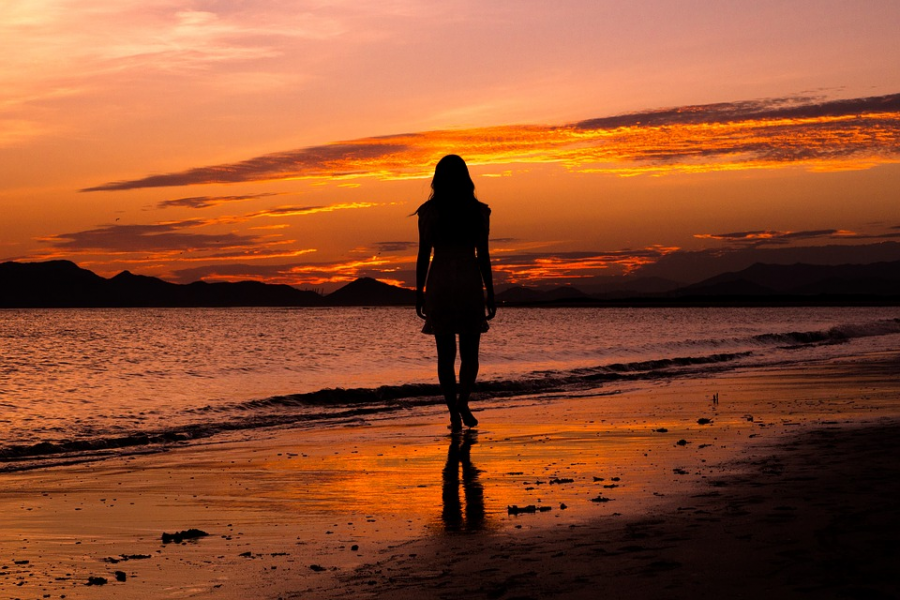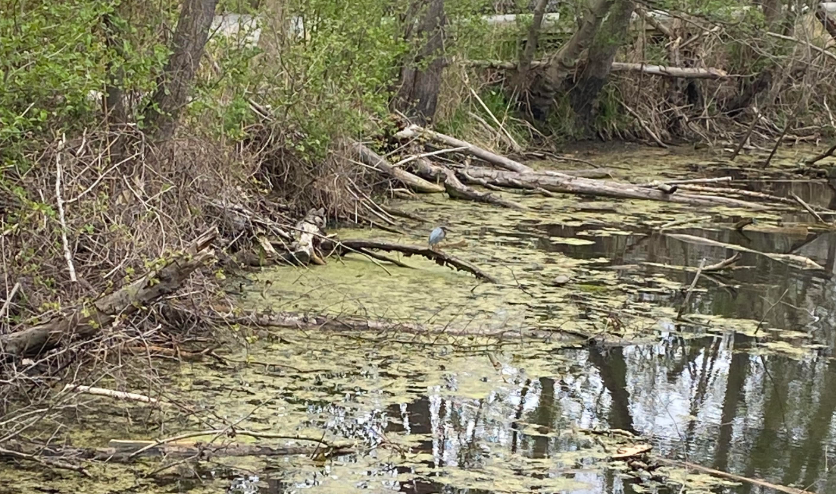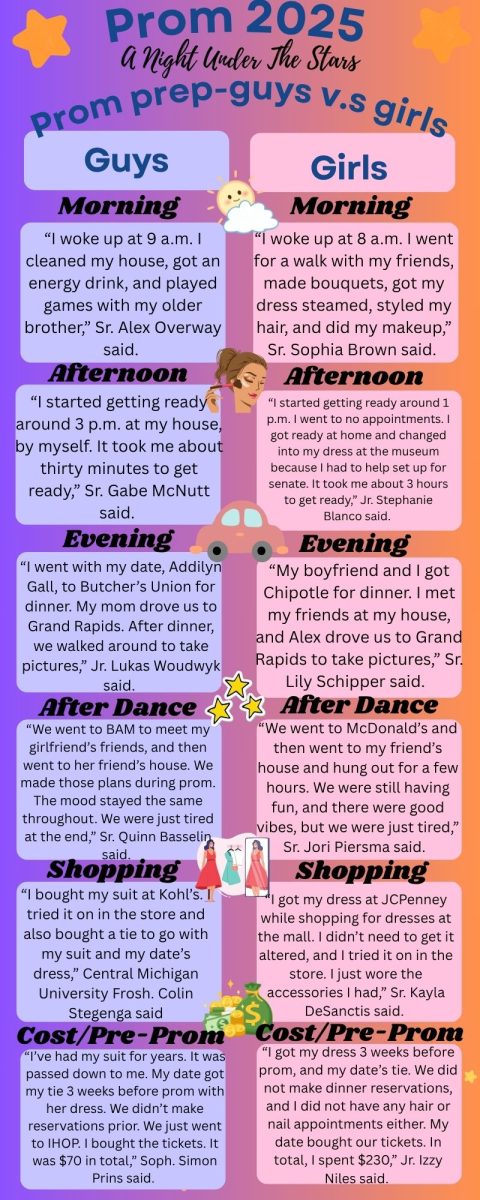I remember staring at my neighbors through a window screen. My breath fogged up the glass, and the sun glared into my eyes, but neither distracted me. The two women were landscaping together, planting multicolored tulips with their sons. I always wondered how the pair had children but no husbands. Perhaps the two were friends.
I enjoyed a fairly normal childhood in a small town. I ran around the school playground with my best friends, chasing boys, and tried out a variety of extracurriculars. However, as I look back, I see how my childhood conformed me to societal standards. The world seemed tremendous, but I was trapped in a prison of similarity.
Near the end of middle school, the thought of them being married finally occurred. Until I was thirteen years of age, I believed the two were just friends who decided to live together. As I read Rick Riordan’s Percy Jackson, the concept of a same-sex relationship began to make more sense. One character, Nico Di Angelo, came out to the other characters. In the book, another male, Will Solace, confessed his love to Nico. In the end, the two ended up as a couple. Up until that point, homosexual relationships were unreal to me.
Once I stepped into middle school, my eyes widened, literally. On the first day of middle school, I ran home crying after seeing swear-words graffitied across the bathroom stall. Soon, I embraced the change or at least I believed I did. Sixth and seventh grade were rough patches in my life. Hormonal teenagers turned cruel, and students would look for anything that would give them the opportunity to tease someone. Students wouldn’t hesitate to cackle at someone wearing joggers. Once again, the idea of similarity struck me down; I found myself blending in with the crowd. I embraced my large group of athletic friends, and I worked hard to build myself a social status. To a middle schooler, popularity means the world. I mimicked the overly popular girls.
In eighth grade, I developed an identity crisis. I didn’t know who I was, and everything around me changed. I felt strange. I hated the feeling. I tried to flush out the feeling by immersing myself into the fictional world. It worked for the year. But even in a dystopian fantasy, the characters were socially normal. Katniss Everdeen fell in love with a male; Tony Stark fell in love with a female; Harry Potter fell in love with a female. Literature served as a place where I could find peace within myself. I’d fall in love with a man eventually,I was a normal teenager and nothing more.
High school served as a refresher. A new school gave me the chance to start over; to become the person I dreamed of. In elementary, I imagined myself going to school dances with my boyfriend. However, as I reimagined the same scene in high school, the story was blurred. I couldn’t see myself dancing with a man, but why? Why did everything suddenly feel weird?
I didn’t come to terms with my sexuality easily. I pushed myself to find a boyfriend, to stifle the feelings of discomfort. I threw myself into schoolwork to ignore the anxiousness in my stomach, yet, as hard as I tried, nothing felt right. This wasn’t me; this wasn’t who I wanted to be.
In the middle of ninth grade, I found a person I connected with, but it wasn’t what I expected. I didn’t want to accept the fact that I was romantically attracted to females. I believed I was confused; I just needed time to find the right man for me. All my life, I was sheltered from the idea of a homosexual relationship, so I couldn’t possibly want to be in one myself.
Towards the end of ninth grade, I conducted a research paper on the struggles the LGBT community faces. I hoped to educate myself on the topic. However, I still recall how my parents reacted to my choice. My parents explained how they weren’t to judge but in the end, God would judge homosexuals. That single conversation shattered my world. Why was it so wrong for girls to like girls, and for boys to like boys? I didn’t understand. In fact, I still don’t see why same-sex relationships are seen as wrong. Perhaps the belief comes from an expectation that children grow up heterosexual. Perhaps the view comes from the fact a majority of television shows only display opposite-sex relationships. Heteronormativity dominated the majority of my life, yet I strived to overcome the powerful storm.
Over the summer of 2017, I finally came to terms with my sexuality. The task wasn’t easy, but I found role models and exposed myself to positive LGBT culture. I accepted that there is nothing wrong with being attracted to females. I accepted there is nothing was wrong with me. The years of confusion eventually ended. I started celebrating my true self.
Even though I accept myself, when I tell someone my sexuality, a part of my soul is taken away. To me, heteronormativity is the reason why I hide my sexual orientation. The culture makes people look at my sexuality with disgust. If I told my family and friends my secret, I know nothing would be the same. I’d stick out. People would go extra lengths to make sure I do or don’t belong.
In tenth grade, I made the mistake of being open about my sexuality. While waiting after school for my friend, a small group of students approached me while saying, “Hey f*g, oh I mean, lesbian.” Those words haunt me.
Towards the middle of my tenth-grade year, I attended a conference for students at city hall. The topic of discussion was how to build a successful relationship. With the authority the mayor possesses, I expected the event to hold characteristics of professionalism and acceptance. When I shared my experiences of growing up gay in a heteronormal environment, I simply wanted to share my personal beliefs. Instead of discussing all relationships, an adult said, “Homosexual relationships are wrong. No successful relationship can come from two women or two men.” I simply turned my head to the comments and discussed diverse relationships with my peers. Later on, an older woman approached me saying, “When did you decide your sexuality?” After explaining a shortened version of my past, she followed up with, “Well, I wish you luck in finding yourself a husband.” The words hit me like a truck. I had accepted my sexuality, but others hadn’t.
The heteronormativity storm isn’t easy to overcome. Whenever I believe I’ve finally broken past it, I find myself trapped in the neverending heteronormal culture. Alas, the view comes from those around me, not myself. Regardless of the community around me, I have to accept myself first. I can’t change my sexuality. I’m not ashamed of who I am. Heteronormal culture doesn’t define me. Throughout my life, numerous challenges beat me up, but thankfully, I’ve overcome such difficulties.
I’ve blossomed tremendously in the past few years. The experiences of seeing a same-sex couple in popular culture for the first time and acknowledging the beauty of all relationships have opened my eyes to the diversity surrounding me. Heteronormativity doesn’t define who I am, but I’m thankful that the belief has allowed me to overcome numerous difficulties that shaped me into the person I am now.







